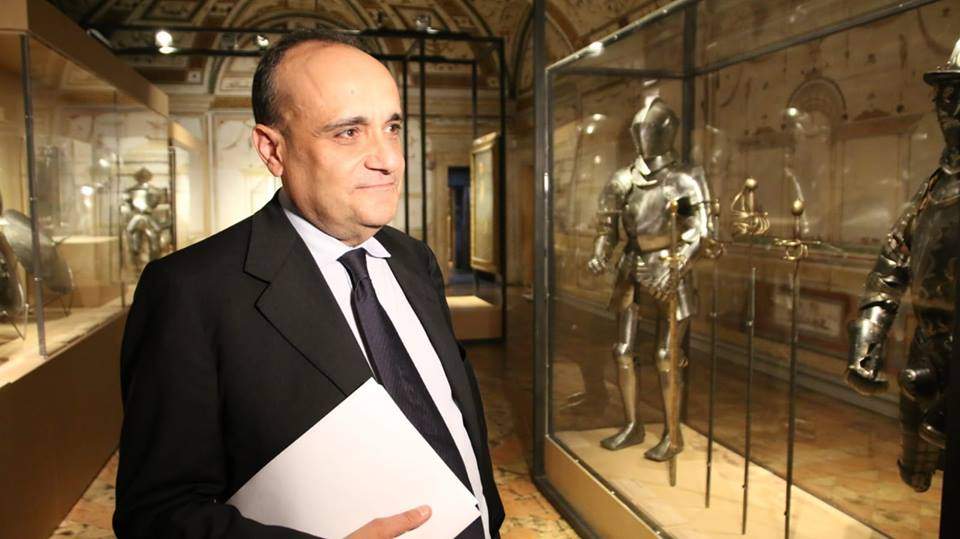Criticism of the Bonisoli reform also comes from the Italian section ofICOM (International Council Of Museums), the most important international organization representing museums. ICOM’s board of directors met in Rome on Aug. 22 and expressed its concerns about the new structure of the Ministry of Cultural Heritage: while appreciating, on the part of the Bonisoli reform, the confirmation of the ICOM definition of museum in the text of the DPCM, the recognition of the special autonomy of some museums and the technical-scientific autonomy of all museums, the maintenance of the General Directorate of Museums, the presence of peripheral structures that coordinate cultural places and the implementation of the national museum system, the critical points, according to ICOM Italy, would be several.
There are five major concerns in particular. The first concerns theautonomy of the institutes: according to ICOM Italy, the criteria by which autonomous museums have been reduced are unclear, such clarity that the “overall cultural design,” as stated in the note released by the organization, has not been glimpsed, and that it has been necessary to impose “continuous upheavals on institutes that in carrying out complex functions of protection and enhancement need stability and long-term work prospects.” The director’s autonomy is then heavily restricted “with the provision of a series of administrative steps dinformation, consultation, approval not only by DG Museums, on which they functionally depend, but also by other central structures (DG ABAAP, DG Budget, DG Contracts and Concessions, the Secretariat).” And this, according to ICOM Italy, will result in a “worrying and risky lengthening of action times and congestion of the different offices.” Criticism also for the abolition of boards of directors, “in contrast to an increasingly widespread practice internationally”: the risk is to deprive the director of useful support.
The second point concerns the national museum system (SMN): specifically omitted, according to ICOM Italy, is “any reference to regional accreditation bodies and the functions of the ministerial commission for the lattuation of the SMN.” Again, competencies appear to be centralized, and according to ICOM, for the implementation of the SMN “excessive ministerial dirigisme should be avoided and an equal body (such as the current Commission) should be entrusted with the tasks of support, evaluation and guidance.” The third point concerns the territorial directorates of museum networks: in this case ICOM Italy “considers it a mistake to have provided single directorates for several regions and fears that the extension of the competencies of the former museum poles to such vast territories (the Lombardy/Veneto case is particularly abnormal) may make the coordination action of museums less effective and, above all, the encouragement of the integration of cultural policies among different public and private actors and the promotion of networks of museums (and other institutions such as archives and libraries) of different ownership, generally operating on a regional or subregional scale.”
The fourth point is on museum professionals: according to ICOM Italy, the reform does not take into account the fact that the autonomy of museums requires professional figures with interdisciplinary curricula and high specialization. Finally, the fifth point is on advisory bodies: according to ICOM Italy, “[t]he Scientific Technical Committee for Museums and the Economy of Culture maintains an improper overlap of areas and technical expertise and, due to the greater relevance of financial economic aspects, expressly referred to by the DPCM, has a narrower range of analysis in the field of museums ICOM Italy would have hoped for a prior debate in the Higher Council of Cultural Heritage (where the reform was presented only the day before the discussion in the Council of Ministers) and the consultation of the associations most representative of the different areas and different professions, in a more serious and structured way than those practiced (hearings of a few minutes in a confused context, with disparate interlocutors, self-convened).”
 |
| ICOM Italy criticizes Bonisoli reform: autonomy of museums severely limited |
Warning: the translation into English of the original Italian article was created using automatic tools. We undertake to review all articles, but we do not guarantee the total absence of inaccuracies in the translation due to the program. You can find the original by clicking on the ITA button. If you find any mistake,please contact us.